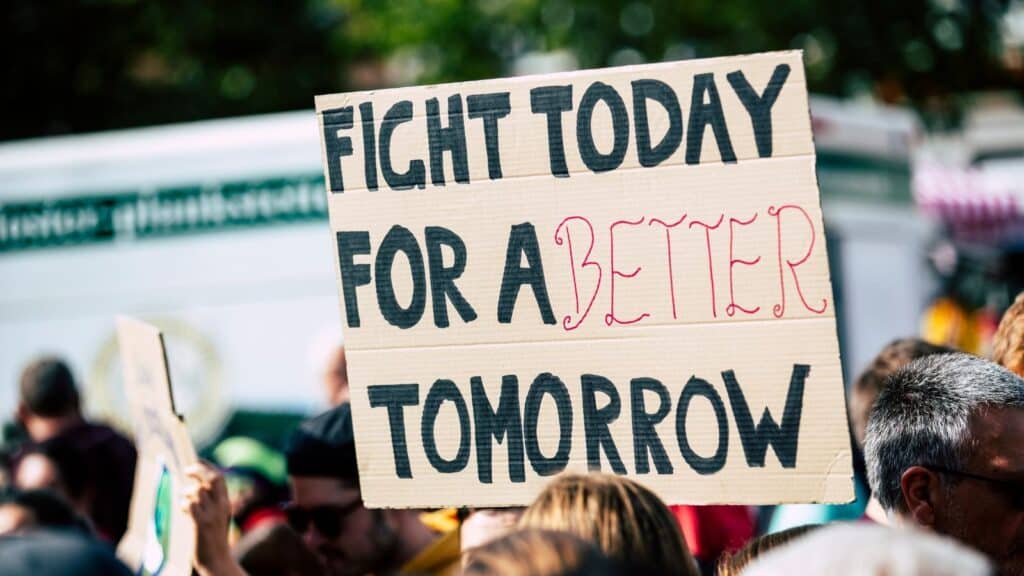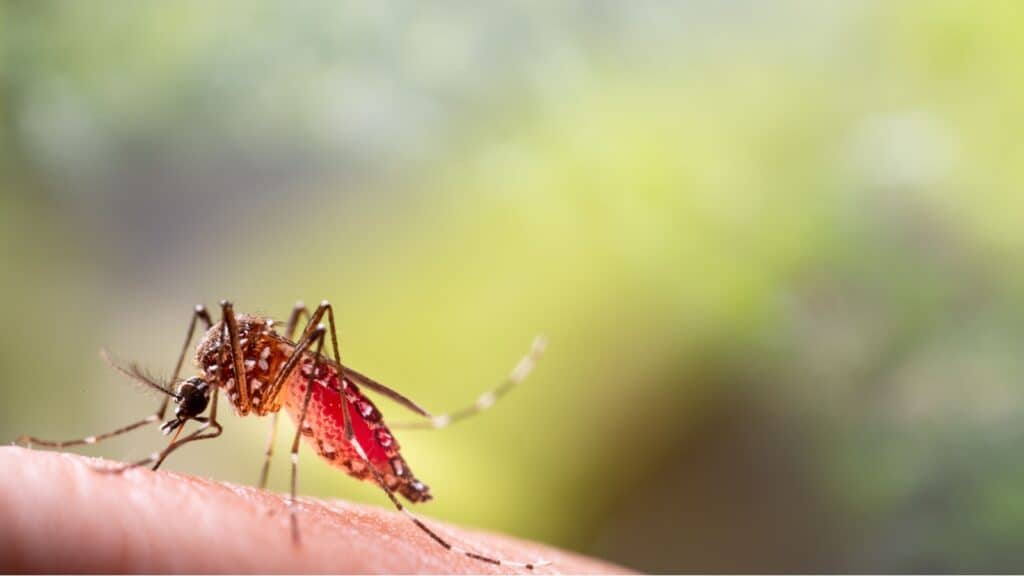Water Shortages: A Crisis America Isn’t Ready For
Most Americans do not have to worry about running out of clean drinking water, but we should. We’re lucky now but might not be so privileged regarding water access in the future.
Water scarcity is a growing global concern that threatens the well-being of communities, economies, and ecosystems. As we face increasing pressure on our water resources, it’s crucial to understand the potential consequences and take action to mitigate them.
Let’s explore the impacts of water scarcity, examine real-world examples, and discuss potential solutions and preparedness strategies. This is not the kind of situation we should face unprepared.
Current Examples of Communities Running Out of Water

Several communities have experienced severe water shortages, providing a glimpse into the potential future of water scarcity. Cape Town, South Africa faced a water crisis in 2018, coming dangerously close to “Day Zero” when taps would run dry. Chennai, India experienced a major water crisis in 2019, forcing residents to rely on water tankers and limiting daily activities. California’s Central Valley has seen wells run dry, leaving some communities without running water for months.
Projected Increase in Water-Scarce Urban Populations

The number of people affected by water scarcity is expected to rise dramatically in the coming decades. By 2050, the global urban population facing water scarcity is projected to increase from 933 million (33% of global urban population) in 2016 to 1.693-2.373 billion (35-51% of global urban population). India is projected to be the most severely affected, with an increase of 153-422 million people living in water-scarce urban areas by 2050 — a true disaster.
Impact on Agriculture and Food Security

Water scarcity also poses a significant threat to agricultural production and global food security, so the consequences of running out of water go far beyond just hydration needs. By 2040, about 40% of all irrigated agriculture is expected to face extremely high water stress—that’s almost half. Feeding 9 billion people by 2050 will require a 60% increase in agricultural production and a 15% increase in water withdrawals. This isn’t a potential future problem. We need to address this soon.
Economic Consequences of Water Scarcity

The economic impact of water scarcity could be severe and far-reaching, according to experts. Some countries in Sub-Saharan Africa, the Middle East, and Asia may see GDP growth rates shrink by as much as 6% by 2050 due to water-related losses in agriculture, health, income, and property. Water is essential for creating and maintaining jobs, with at least half of the global workforce employed in water and natural-resource-dependent industries. Water scarcity impacts practically every aspect of society.
Health and Social Implications

Water scarcity can have significant health and social consequences that we should be aware of. Declining water security often leads to a decrease in individual livelihoods, health, and overall well-being. Poor and vulnerable groups usually pay more proportionally for water of lesser quality, contributing to a water-poverty link. This hardly makes any sense, but much of the world is designed to keep impoverished people impoverished. Every year, about 7.2 million people in the U.S. get sick from diseases spread through water because they’re drinking unsafe water, which in itself is a form of water scarcity.
Environmental Degradation and Climate Change

Water scarcity is also closely linked to environmental degradation and climate change, which is probably not surprising to hear. Anthropogenic degradation of landscapes and waterscapes, along with climate change, are affecting the quantity, quality, and timing of water supplies, worsening many of the current issues mentioned here. By 2050, five times as much land will likely be under “extreme drought” compared to today.
Efforts to Address Water Scarcity

Luckily, some organizations and governing bodies are making efforts to prevent a water scarcity societal collapse. Various initiatives are already underway to address water scarcity (thank goodness). Water funds are being established to protect and restore water sources. Incentives are being promoted to encourage water conservation and efficient use. Collaboration with water users, particularly in the agricultural sector, is being pursued to improve water management practices. Lastly, policies and funding mechanisms are being developed to support sustainable water use. But will this all be enough? Likely not. We need to do more.
Personal Preparedness for Water Scarcity

So, what can you do? These are some of the things individuals can do to prepare for potential water scarcity; these are things YOU can do to protect yourself from water scarcity. Store at least one gallon of water per person daily for three days for drinking and sanitation, with a two-week supply if possible. It’s extremely useful to learn how to make water safe through boiling, disinfection, filtration, or ultraviolet light, Try to identify alternative water sources inside and outside the home, Finally, make sure you stay informed about local water advisories and follow recommendations from authorities.
It’s Time to Take Water Scarcity Seriously

You probably let the shower run for five minutes before getting in, dump out water that’s been sitting in your drinking glass for too long, and fill up a kiddie pool to cool off during summer. These are the kinds of things we take for granted because we have easy water access. But if we continue wasting water the way we do, things will change drastically.
Unfortunately, while we can all do something to reduce our water use, large corporations and governing bodies need to make profound changes, and that only happens when we all stand up and demand action. By taking action now, we can help mitigate the impacts of water scarcity and ensure a more water-secure future for generations to come.
Can The Human Body Adapt To The Rising Heat? And What Are We Doing If We Can’t?

As climate change intensifies, the human body’s ability to adapt to rising temperatures is becoming a critical concern. According to Dr. Camilo Mora, an expert on heat’s effects on human physiology, “The human body has remarkable adaptability to heat, but there are limits to how much we can physiologically adapt to rising temperatures due to climate change.” This introduction explores the extent of our physiological adaptations, the challenges we face as global temperatures climb, and the potential consequences if our bodies fail to keep pace with environmental changes.
READ: Can The Human Body Adapt To The Rising Heat? And What Are We Doing If We Can’t?
Why Do Mosquitos Seem To Like Me So Much, and What Can I Do About It?

Have you ever wondered why mosquitoes seem to prefer biting some people over others? Understanding the reasons behind this can help in mitigating their impact. Mosquitoes are attracted to certain individuals due to factors like body odor, carbon dioxide, and body heat. These pests are not just annoying; they can also carry dangerous diseases such as malaria, dengue fever, and Zika virus. In this article, we explore why mosquitoes are drawn to specific people, the health risks they pose, and effective strategies to protect yourself from their bites.
READ: Why Do Mosquitos Seem To Like Me So Much, and What Can I Do About It?
Is There A Link Between Being A ‘Good Girl’ And Autoimmune Disease In Women?

Women Rising®, an 11x award-winning women’s empowerment and media company founded by autoimmune-diagnosed, 15x award-winning documentary filmmaker, Sara Hirsh Bordo, recently released findings from Autoimmunity and the “Good Girls” ™ the first-ever sociological survey exploring the intersection between empowerment and autoimmunity in American women. READ: Is There A Link Between Being A ‘Good Girl’ And Autoimmune Disease In Women?
Join Us

Join us on this empowering journey as we explore, celebrate, and elevate “her story.” The Queen Zone is not just a platform; it’s a community where women from all walks of life can come together, share their experiences, and inspire one another. Welcome to a space where the female experience takes center stage. Sign up for our newsletter so you don’t miss a thing, Queen!







